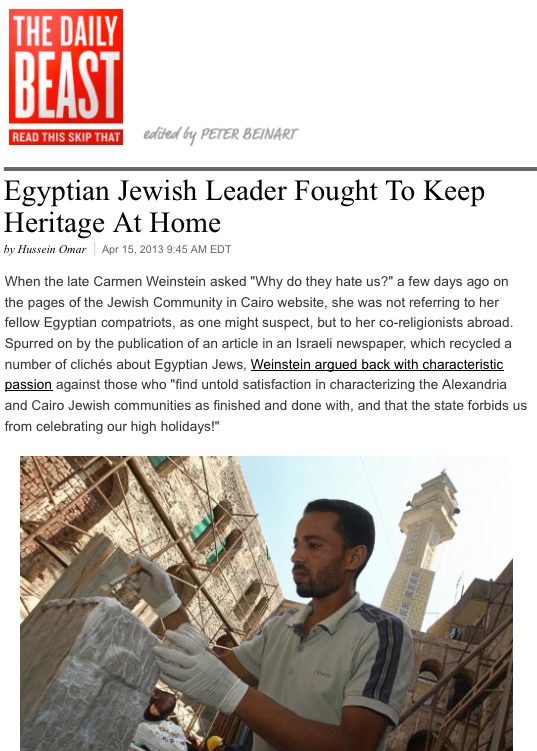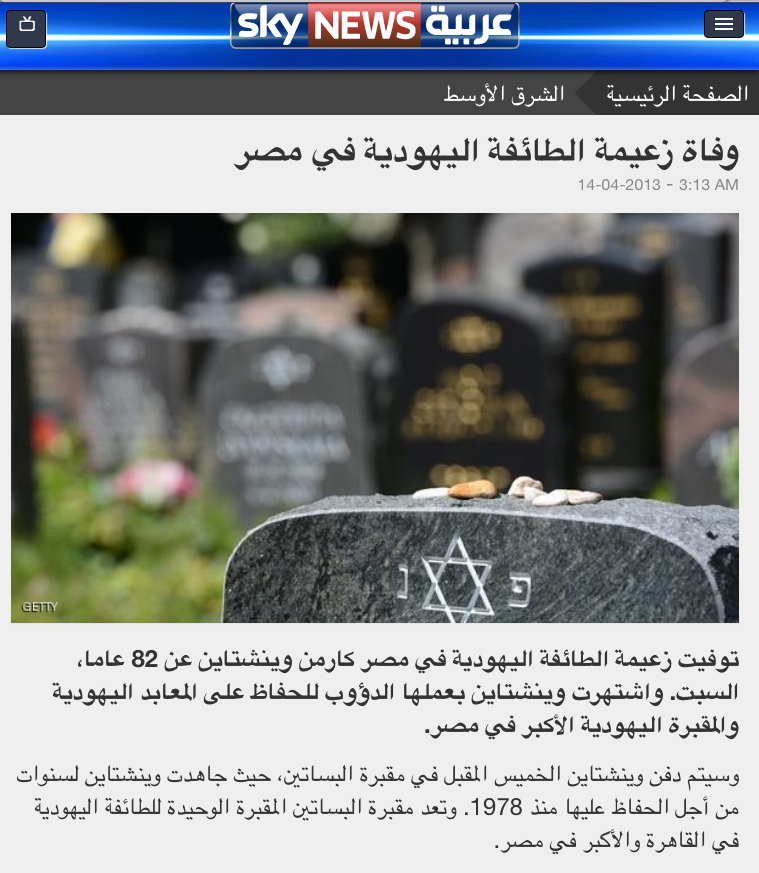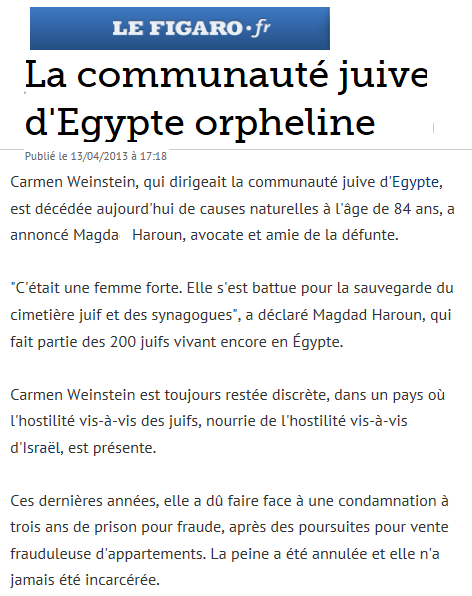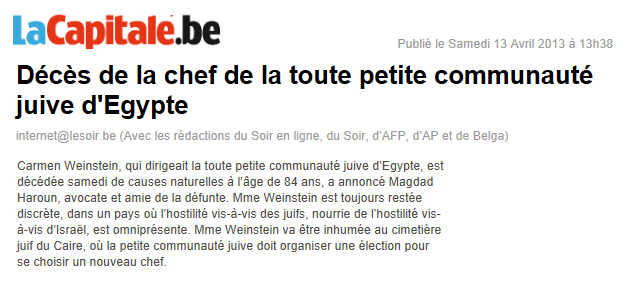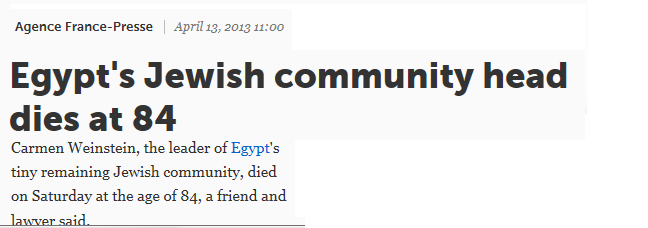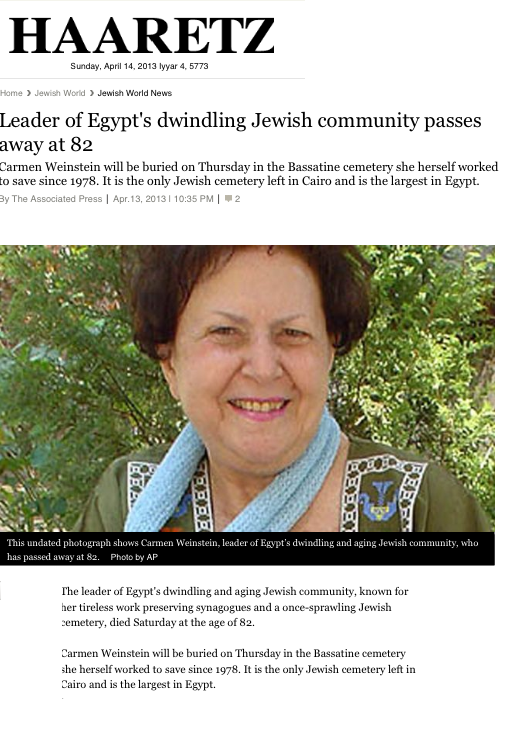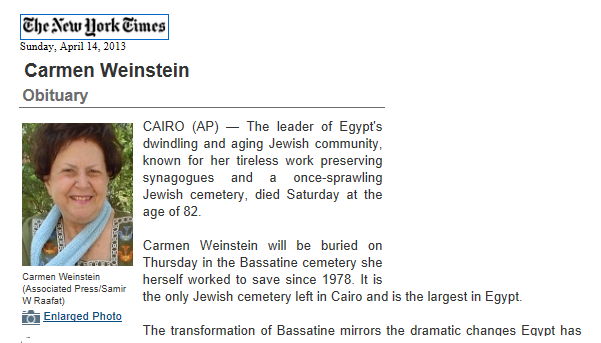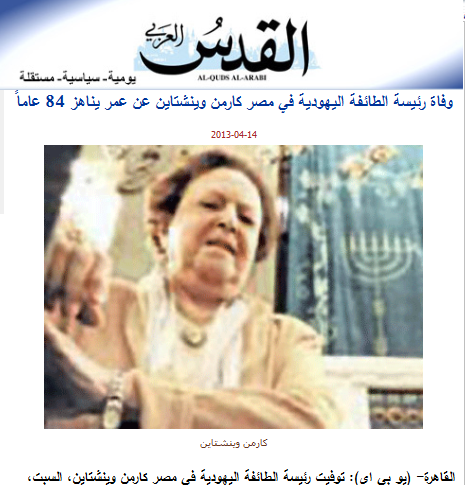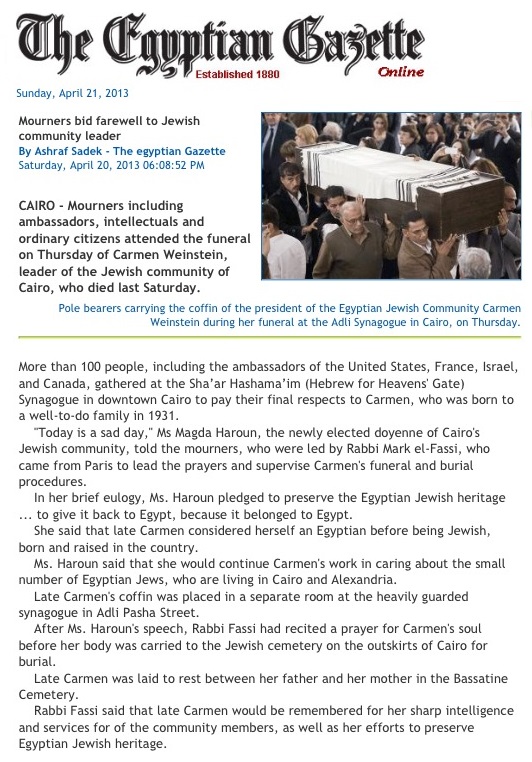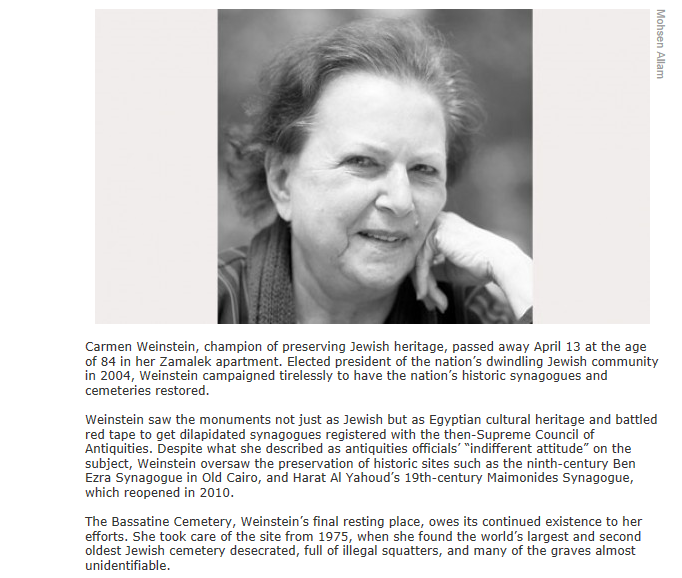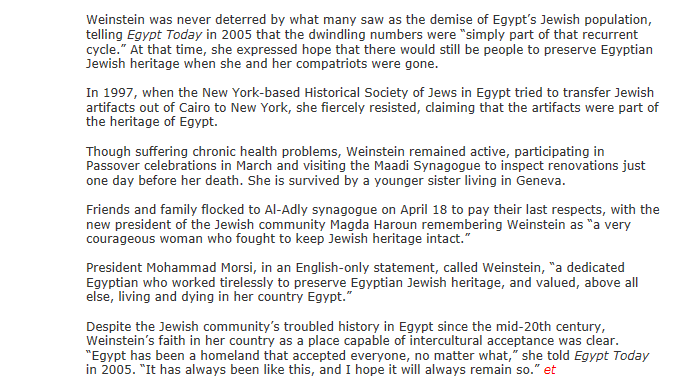|

 CAIRO (AP) — The leader of Egypt's dwindling and aging Jewish community, known for her tireless work preserving synagogues and a once-sprawling Jewish cemetery, died Saturday at the age of 82.
CAIRO (AP) — The leader of Egypt's dwindling and aging Jewish community, known for her tireless work preserving synagogues and a once-sprawling Jewish cemetery, died Saturday at the age of 82.
Carmen Weinstein will be buried on Thursday in the Bassatine cemetery she herself worked to save since 1978. It is the only Jewish cemetery left in Cairo and is the largest in Egypt.
The transformation of Bassatine mirrors the dramatic changes Egypt has undergone as its population skyrocketed and poverty grew. Named in Arabic after its gardens, the cemetery is now a slum of tightly-packed redbrick apartment buildings that house thousands of poor Egyptians after waves of migration from villages in southern Egypt.
Parts of Bassatine were turned into a garbage dump, while another area was seized by antiquities' officials. Weinstein was able to preserve a small area as a Jewish cemetery.
Egypt's once thriving Jewish community largely left more than 60 years ago at a time of hostilities between the country and Israel. Estimates say that since the creation of the state of Israel in 1948, about 65,000 Jews left Egypt — most of them traveling to Europe and the West. Some settled in Israel.
Their departure was fueled by rising nationalist sentiment during the Arab-Israeli wars, and harassment and some direct expulsions by then-President Gamal Abdel-Nasser, who seized power shortly after a military coup ousted the country's king.
According to a friend of Weinstein, Magda Haroun, only around 40 Egyptian Jews remain in the country, split between Cairo and the Mediterranean city of Alexandria that was also once a thriving multicultural and cosmopolitan hub.
Haroun, who says she is one of Egypt's last surviving Jews, said Weinstein's father had owned a large print shop in downtown Cairo, where she had worked for some 50 years after her father's death. The family's name remains on the shop, which now sells stationary.
"She was a friend of my parents' and I remember her being a very well-educated woman who was very courageous because she fought a lot to keep the Jewish heritage as much as she could intact," Haroun said. "I owe her a lot of respect for this."
As the president of the Jewish Community in Cairo, Weinstein helped urge Egyptian authorities to renovate at least four Cairo synagogues. Some 15 still exist in the megacity.
Just a day before her death, she traveled to the Maadi suburb to inspect the renovation of a synagogue there, according to a statement by the community she led for nearly 20 years.
In their Saturday statement, the group said she died in her home in the upscale Zamalek neighborhood. She had been suffering from knee problems and poor blood circulation.
Several members of Weinstein's family, as well as Haroun's, are buried in Bassatine. In comments written in the community's newsletter, Weinstein wrote that Jews who fled Europe because of persecution there remain buried in the Cairo cemetery as a "further testimony to Egyptian tolerance and hospitality."
Haroun said that one of Weinstein's other triumphs was in convincing Egypt's remaining Jews to come together and use Cairo's main downtown synagogue for prayer, after it had been closed for years.
"We were scattered all over Cairo and she managed to regroup us and keep us together. She insisted that we all celebrate religious events at the synagogue," Haroun said.
In her last community newsletter, Weinstein wrote about this year's Passover ceremony in late March that was celebrated by about 50 people in Cairo's main synagogue, many of whom were diplomats.
"The recent declining numbers notwithstanding, we're thankful that we are still a crowd, albeit a small one," she wrote. She also condemned suggestions that Egypt forbids Jews from celebrating holidays.
Weinstein worked to remind people that Jews in Egypt were once part of the country's vibrant economy, cultural and political life.
She, like others, attended school and university alongside Muslims and Christians. She was a graduate of both Cairo University and the American University in Cairo where she studied literature, according to a biography posted on the group's website. As with many of the educated elite of her generation in Egypt, she spoke fluent French, English and Arabic.
The family friend said Weinstein often reminisced of the Egypt she knew growing up, when neighbors did not ask about one another's religion.
Haroun said the community will try and remember Weinstein's work by staying together. "We have to," she said. "The young will have to bury the old until we find no one to bury us."
|





